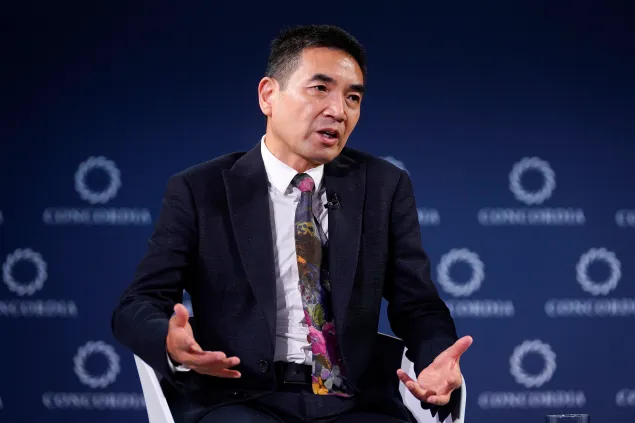The traditional five-day workweek could soon become a relic of the past.
Zoom CEO Eric Yuan is among the latest tech leaders suggesting a radical rethink of how—and when—we work, especially as artificial intelligence reshapes office life.
“I feel like if AI can make our lives better, why should we stick to five-day workweeks?”
Yuan told The New York Times.
He envisions a future where most companies adopt three- or four-day schedules as automation reduces the need for constant human labor.
AI Is Changing the Game
Yuan isn’t alone in this vision.
A growing number of corporate executives believe AI will not just transform how we work, but also when.
For employees, this could mean shorter workweeks—or in some cases, fewer jobs altogether.
“Every company will support three or four days a week,” Yuan said.
“I think this ultimately frees up everyone’s time.”
Yet he also acknowledged the reality of disruption: as AI agents take over certain tasks, job losses are unavoidable.
Tech Titans Predict Shorter Weeks
Other tech heavyweights are echoing similar ideas.
Microsoft co-founder Bill Gates, Nvidia CEO Jensen Huang, and JPMorgan Chase CEO Jamie Dimon have all floated the possibility of reduced workweeks.
Some see it as an era of increased leisure and creativity, while others prepare for significant layoffs.
“Whenever there’s a technology paradigm shift, some jobs disappear, but new opportunities emerge,” Yuan explained.
“For example, entry-level engineers might have AI writing code, but someone still needs to manage that code.
You also create digital agents that require human oversight.”
Shorter Weeks and Human Purpose
Earlier this year, Bill Gates reflected on AI’s potential to shrink the human workload.
“What will jobs look like? Maybe we only work two or three days a week,” he told Jimmy Fallon on The Tonight Show.
“Ultimately, life isn’t just about doing jobs.”
Nvidia’s Jensen Huang agrees, noting that AI is still in its infancy.
“We’re probably moving toward a four-day workweek, but we’ll be busier than ever,” he said.
Over the last few centuries, rising productivity has consistently created more employment opportunities, and Huang believes AI could continue that trend by unlocking new ideas and innovations.
Lessons From History
History shows that technological revolutions often replace some jobs while creating others.
During the industrial revolution, machines eliminated labor-intensive roles but opened opportunities in logistics, engineering, and management.
Similarly, the internet reshaped clerical and communication work.
The Costs and Concerns
Efficiency comes at a price. Anthropic CEO Dario Amodei has warned of a potential white-collar “jobs armageddon,” while Klarna CEO Sebastian Siemiatkowski revealed that automation allowed his company to replace 700 employees without adding new hires.
Even Jamie Dimon has acknowledged AI’s potential upside: “Your children might work three and a half days a week thanks to technology,” he told Bloomberg TV.
Evidence for Shorter Weeks
Data from recent trials supports the idea that reduced workweeks can benefit both employees and companies.
A 2022 UK pilot study of the four-day workweek reported higher satisfaction, lower burnout, and increased productivity.
In the US, performance coaching firm Exos found that cutting a day from the schedule halved employee burnout while boosting output by 24%.
AI Handling the Grind
Tasks like drafting emails, scheduling meetings, and even basic coding are increasingly handled by AI-powered virtual assistants—agents that don’t sleep, complain, or take lunch breaks.
The question now isn’t just whether we can work less, but what we’ll do with the extra time.
Will AI give us freedom, or will it challenge the way we think about work itself?
